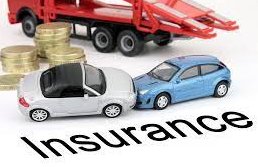Auto Insurance: Definition, How It Works,
Auto insurance, also known as car insurance or motor insurance, is a type of insurance coverage that provides financial protection against physical damage or bodily injury resulting from accidents involving automobiles.
Auto insurance is designed to protect vehicle owners and drivers from potential losses or liabilities in the event of accidents, theft, or damage to their vehicles.
Auto insurance policies typically offer coverage for various scenarios, including:
Liability Coverage: This coverage helps protect the insured driver from legal liabilities arising from bodily injury or property damage caused to others in an accident where the insured driver is at fault.
Collision Coverage: This coverage helps cover the costs of repairing or replacing the insured vehicle in the event of a collision with another vehicle or object.
Comprehensive Coverage: This coverage helps protect against damages to the insured vehicle that are not caused by a collision, such as theft, vandalism, fire, natural disasters, or falling objects.
Personal Injury Protection (PIP) or Medical Payments Coverage: This coverage helps cover medical expenses for injuries sustained by the insured driver and passengers in an accident, regardless of fault.
Uninsured/Underinsured Motorist Coverage: This coverage helps protect the insured driver and passengers if they are involved in an accident caused by an uninsured or underinsured driver who lacks sufficient insurance coverage to compensate for damages or injuries.
Auto insurance policies can vary in terms of coverage limits, deductibles, and additional optional coverage options. The cost of auto insurance premiums is influenced by factors such as the driver's age, driving history, location, type of vehicle, and coverage selections.
It is essential for vehicle owners and drivers to have auto insurance to comply with legal requirements and provide financial protection in case of accidents or other covered incidents.
How Auto Insurance Works
Auto insurance works by providing financial protection to vehicle owners and drivers in the event of accidents, theft, or damage to their vehicles. Here's how auto insurance typically works:
Policy Purchase: The vehicle owner purchases an auto insurance policy from an insurance provider. The policy specifies the coverage types, limits, deductibles, and premium amounts.
Premium Payment: The insured individual pays regular premiums to the insurance company. The premium amount is determined based on factors such as the driver's age, driving history, location, type of vehicle, and coverage selections.
Coverage Types: The policy may include different types of coverage, such as liability coverage, collision coverage, comprehensive coverage, personal injury protection (PIP), or uninsured/underinsured motorist coverage. Each coverage type provides specific protection against different types of risks.
Occurrence of an Incident: If an incident occurs, such as an accident or theft, the insured individual must report the incident to their insurance company as soon as possible. This typically involves contacting the insurance company's claims department and providing relevant details about the incident.
Claim Evaluation: The insurance company evaluates the claim based on the policy terms, coverage limits, and the circumstances of the incident. They may request additional information, such as police reports or repair estimates, to assess the claim.
Claim Settlement: Once the claim is approved, the insurance company will provide compensation according to the policy terms. The settlement may involve repairing the damaged vehicle, reimbursing for medical expenses, compensating for property damage, or providing a cash settlement based on the coverage and circumstances.
Deductibles: In most auto insurance policies, the insured individual is responsible for paying a deductible before the insurance coverage applies. The deductible is a predetermined amount that the policyholder agrees to pay out of pocket, and the insurance company covers the remaining expenses up to the coverage limits.
Renewal and Adjustments: Auto insurance policies are typically annual contracts, and policyholders need to renew their coverage each year. Policyholders can make adjustments to their coverage during the renewal process, such as changing coverage limits or adding additional coverage options.
It's important for drivers to understand their auto insurance policy, including the coverage types, limits, and exclusions. It is also essential to comply with the policy terms, report incidents promptly, and provide accurate information to the insurance company.
Who Does Auto Insurance Coverage Protect?
Auto insurance coverage protects several parties involved in a vehicle-related incident. Here are the main entities that auto insurance coverage typically protects:
Vehicle Owners: Auto insurance protects vehicle owners by providing financial coverage for damages to their vehicles resulting from accidents, theft, vandalism, or other covered incidents. It helps owners repair or replace their vehicles without incurring substantial out-of-pocket expenses.
Drivers: Auto insurance coverage protects drivers who are operating the insured vehicle. If the driver is at fault in an accident, the insurance coverage can help cover the costs of bodily injury or property damage caused to others involved in the incident.
Passengers: Auto insurance coverage can also extend protection to passengers in the insured vehicle. If passengers are injured in an accident, the policy may provide coverage for their medical expenses and other related costs, regardless of fault.
Third Parties: Auto insurance coverage protects third parties who suffer bodily injury or property damage caused by the insured vehicle. If the insured driver is at fault in an accident, the insurance coverage can help compensate the affected parties for their losses, including medical expenses, vehicle repairs, or other damages.
Lenders or Lessors: In cases where a vehicle is financed or leased, the lender or lessor often requires the borrower or lessee to maintain auto insurance coverage. This requirement ensures that the lender's or lessor's financial interest in the vehicle is protected in case of damage or loss.
It's important to note that the specific coverage and limits provided by auto insurance policies may vary. Different policy options, such as liability coverage, collision coverage, or comprehensive coverage, offer varying levels of protection for the above parties. Policyholders should carefully review their policy terms and coverage limits to understand who is protected and the extent of the coverage provided.
💥💥💥💥💥💥💥💥💥💥💥💥






0 Comments